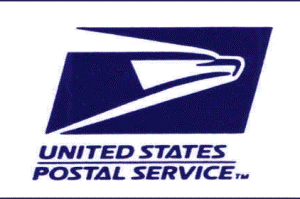 He started working for the U.S. Postal Service as a mail carrier in 1995. Managers praised his work consistently and regularly promoted him, eventually to management positions. His career led him to become a Postal Service safety specialist, where he excelled as he provided safety advice at more than 300 small postal facilities and area offices throughout Washington. In 2008, everything changed after the safety specialist advised a co-worker to call OSHA about her workplace health concerns.
He started working for the U.S. Postal Service as a mail carrier in 1995. Managers praised his work consistently and regularly promoted him, eventually to management positions. His career led him to become a Postal Service safety specialist, where he excelled as he provided safety advice at more than 300 small postal facilities and area offices throughout Washington. In 2008, everything changed after the safety specialist advised a co-worker to call OSHA about her workplace health concerns.
Transferred, demoted and humiliated
Soon after, he found himself working in an increasingly hostile work environment. In a matter of months, the worker was transferred to another office, forced to work in an unheated storage room, demoted, restricted on his movements, publicly humiliated and subjected to four openly antagonistic interviews as part of workplace investigations. He was also issued a disciplinary letter and refused a promotion. In April 2008, the specialist filed his first whistleblower complaint with OSHA in Seattle. Several more complaints would follow as hostilities increased.
An OSHA investigation later confirmed the employee's complaints and acted on his behalf. On Feb. 13, U.S. District Judge Ricardo Martinez in Seattle agreed with OSHA's findings. After a five-day bench trial, the court found that the employee undisputedly engaged in protected activities under the OSH Act by assisting his co-worker on a health and safety concern and by filing his own whistleblower complaints alleging retaliation and harassment.
Target of ridicule
"This employee suffered grave public humiliation by his Postal Service supervisors and was the target of ridicule simply for doing his job and for standing up for the rights of a co-worker," said Ken Atha, OSHA regional administrator in Seattle.
The court found that the employee is entitled to $229,228 in damages. The ruling also requires the Postal Service to promote him to the same pay rate he would have now, had he not been denied a promotion. Judge Martinez also enjoined the Seattle-area Postal Service from discriminating against employees who complain to or cooperate with OSHA, and from failing to take action against managers who interfere with employees exercising their rights under the OSH Act.
Retaliation prohibited
The OSH Act prohibits managers from retaliating against an employee who gives another employee OSHA's telephone number. Workers have a right to contact OSHA and to assist others to connect with OSHA.
OSHA enforces the whistleblower provisions of more than 21 statutes protecting employees who report violations of various commercial motor carrier, airline, nuclear, pipeline, environmental, public transportation agency, consumer product, motor vehicle safety, railroad, maritime, health care reform, food safety, securities and financial reform laws.
Employees who believe that they have been retaliated against for engaging in protected conduct may file a complaint with the secretary of labor to request an investigation by OSHA's Whistleblower Protection Program. Detailed information on employee whistleblower rights is available at www.whistleblowers.gov.



